When it comes to gardening, understanding companion planting can significantly promote the health and productivity of your plants. Companion planting involves pairing plants that benefit each other when grown together. In the case of carrots, there are several plants that make excellent companions, enhancing their growth, deterring pests, and improving overall garden health. Here are the 10 best companion plants for carrots.
10 Best Companion Plants for Carrots
Lettuce
Lettuce is a fantastic companion plant for carrots. It provides shade for the shallow-rooted carrots, protecting them from excessive sunlight and helping to prevent the soil from drying out too quickly. Additionally, lettuce has shallow roots so that it won’t compete with carrots for nutrients or water. This combination allows both plants to thrive without hindering each other’s growth. Plus, the contrasting leaf textures and colors create an aesthetically pleasing garden bed.
In case you missed it: How to Grow Lettuce and Salad Mix in Hydroponics: A Step-by-Step Guide
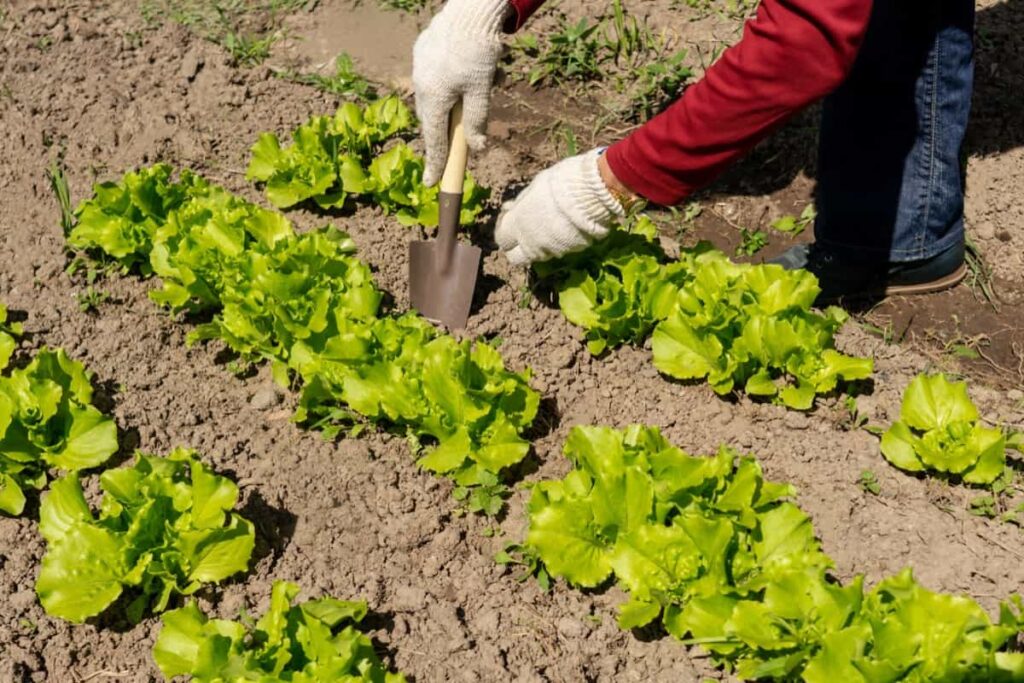
Onions
Onions are another best companion plant for carrots. They help repel pests that commonly affect carrots, such as carrot flies and aphids. The strong scent of onions acts as a natural deterrent, reducing the risk of infestations. Additionally, onions have deep roots that help break up compacted soil, improving the overall soil structure for carrots. Planting onions alongside carrots also maximizes space utilization, making efficient use of your garden beds.
Marigolds
Marigolds are a popular companion planting choice for carrots because they repel pests. The strong scent of marigolds acts as a natural deterrent for nematodes, aphids, and other insects that can harm delicate carrot plants. Additionally, marigolds attract beneficial insects such as ladybugs and lacewings, which help control pests that may attack the carrots. Planting marigolds alongside carrots can create a protective barrier and promote a healthier growing environment for your carrot crop.
In case you missed it: 14 Fruits Trees that Provide High-Quality Wood and Lumber
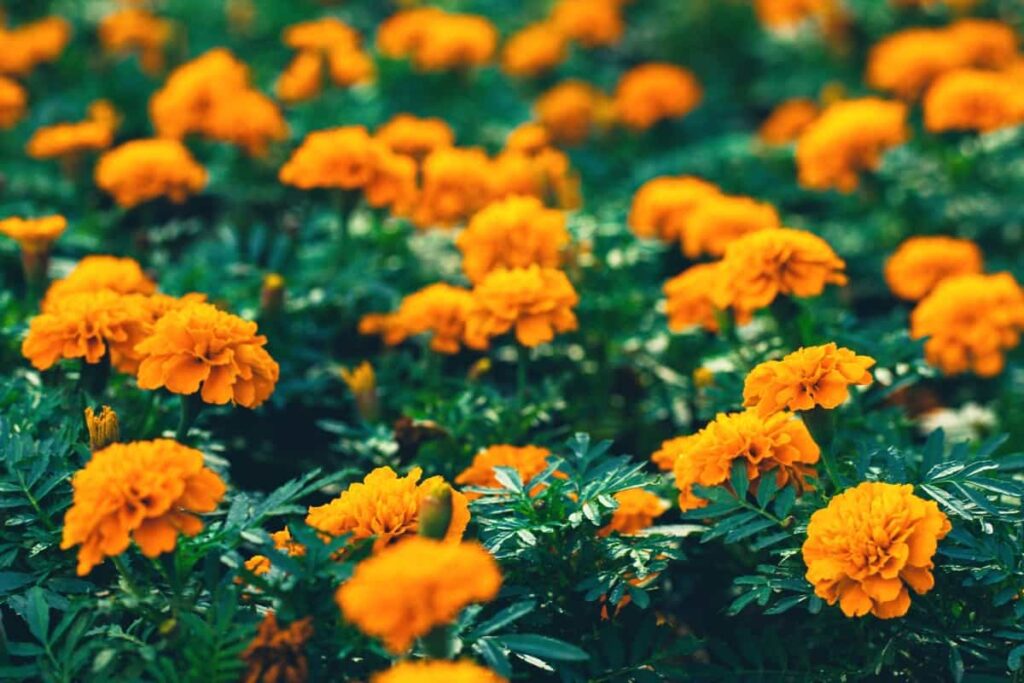
Nasturtiums
Nasturtiums are another excellent companion plant for carrots. These vibrant and colorful flowers not only add beauty to your garden but also serve as a natural pest control measure. Nasturtiums repel aphids, whiteflies, and squash bugs, which can potentially damage carrot plants. Moreover, their sprawling and dense foliage acts as a living mulch, helping to hold moisture in the soil and suppress weed growth. By planting nasturtiums alongside carrots, you can enhance both the aesthetics and overall health of your garden.
Chives Herb
Chives are a beneficial herb to grow alongside carrots. They have natural insect-repellent properties and can deter pests such as carrot flies and aphids. Moreover, chives emit a strong aroma that can confuse and repel pests, ensuring the safety of your carrot plants. Additionally, chives attract pollinators like bees, which can enhance the pollination process and increase the yield of your carrots. Planting chives near carrots not only provides a protective barrier but also adds a delectable flavor to your culinary endeavors.
In case you missed it: How to Germinate Seeds: Techniques for Faster Germination of Vegetables, Flowers, Fruits, and Herbs
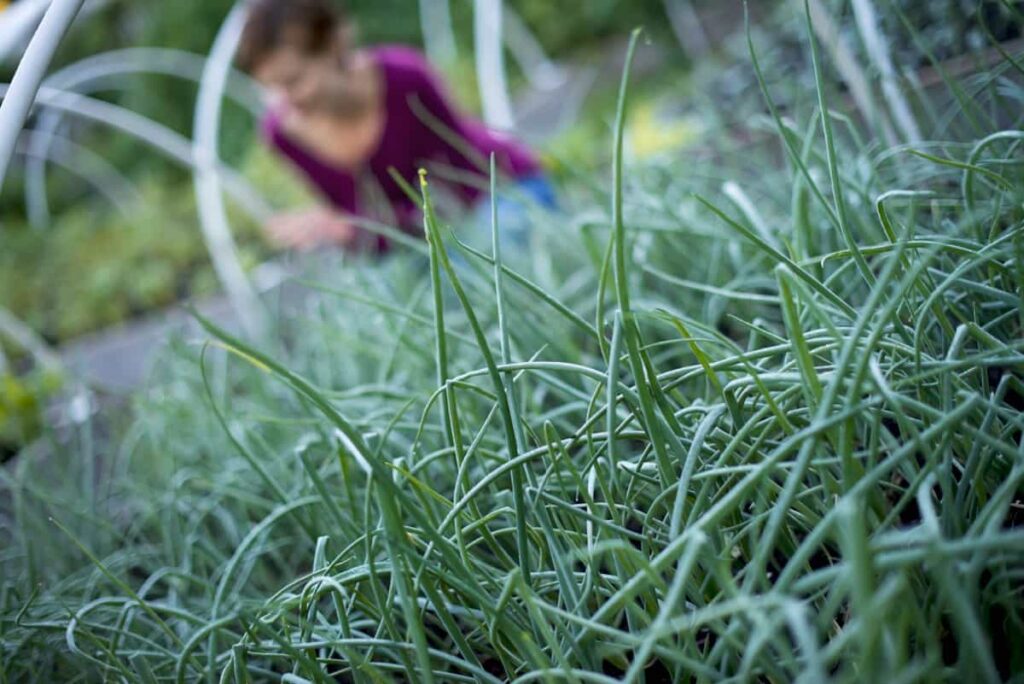
Rosemary Herb
Rosemary is a herb that can be an excellent companion plant for carrots. It has strong aromatic properties that repel carrot flies and certain insects. The scent of rosemary can mask the odor of carrots, making it difficult for pests to locate and attack them. Furthermore, rosemary’s woody texture provides a natural windbreak, protecting the delicate carrot plants from strong gusts. Additionally, rosemary can improve soil fertility by enriching it with essential nutrients. Growing rosemary alongside carrots can lead to a healthier and more robust crop.
In case you missed it: Rosemary Farming Business Plan: A Step-by-Step Guide to Growing and Selling Profitable Herbs
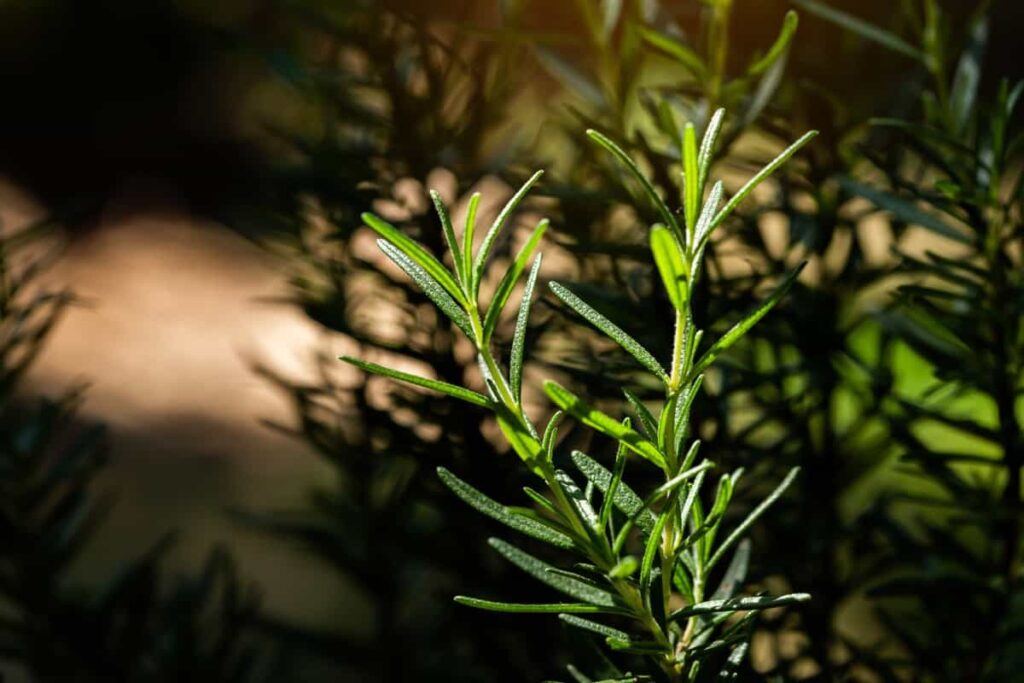
Tomatoes
Tomatoes and carrots complement each other well in the garden. While carrots require loose soil for proper root development, tomatoes have deep root systems that help break up compacted soil. This allows the carrots to grow more easily and improves their overall quality. In return, carrots act as a natural mulch, shading the soil around the tomato plants and helping to conserve moisture.
In case you missed it: Common Tomato Pests and Diseases: Prevention, Treatment, and Control Management
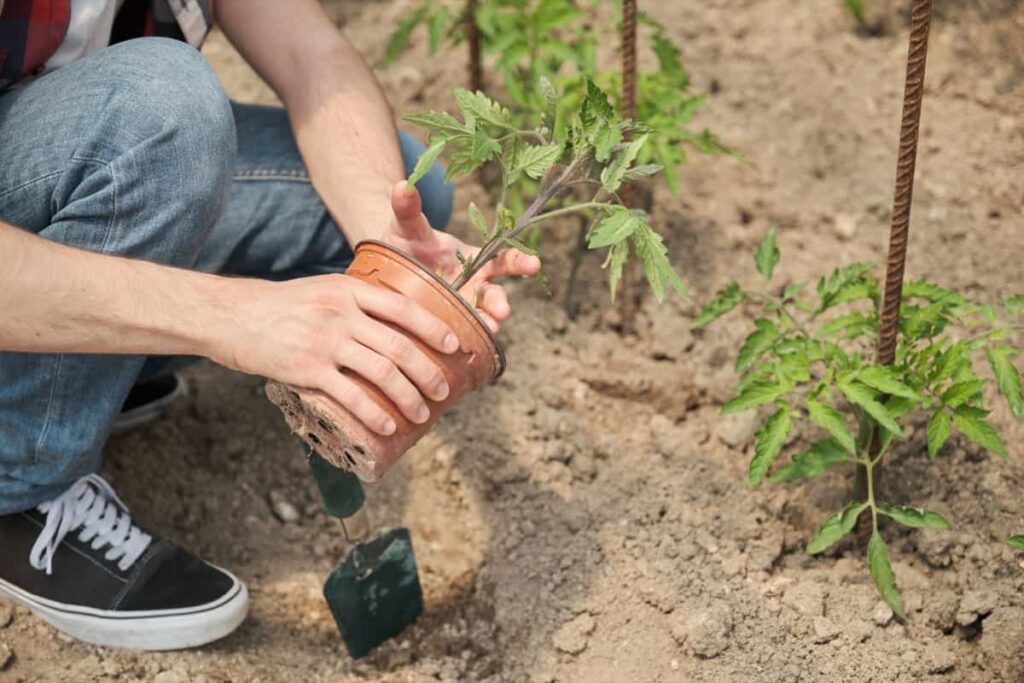
Beans
Beans are another great companion plant for carrots. Their ability to fix atmospheric nitrogen into a form useful to other plants makes them nitrogen-fixing plants. Carrots, on the other hand, benefit from nitrogen-rich soil for healthy foliage growth. By planting beans alongside carrots, you can provide them with a natural nitrogen source, promoting better growth and higher yields.
Garlic
Garlic is a fantastic companion for carrots. Not only does it help repel pests like aphids and carrot flies, but it also enhances the flavor of the carrots themselves. Planting garlic near your carrot patch can act as a natural deterrent, keeping unwanted insects at bay. Additionally, the aromatic compounds released by garlic can confuse and repel pests, creating a healthier environment for your carrots to grow.
In case you missed it: Maximizing Profit with a Comprehensive Garlic Farming Business Plan

Radishes
Radishes are another great companion plant for carrots. These two root vegetables complement each other in multiple ways. Firstly, radishes have a faster growth rate compared to carrots, which means they can help break up the soil and make it easier for the carrot roots to grow. The radishes act as “soil aerators,” loosening the soil and allowing the carrots to develop without obstruction.
In case you missed it: Cultivator Vs Aerator: Can a Cultivator Serve as an Aerator

Best and Worst Companion Plants for Carrots
From the above list, now you have an idea about what to plant along with carrots. On the other hand, What Not to Plant With Carrots? The answer is here below,
- Dill: While dill is a popular herb, it is not an ideal companion for carrots. Dill can attract carrot flies and compete for nutrients and resources, negatively affecting the growth of carrots.
- Parsnips: Parsnips are closely related to carrots and can attract similar pests. Planting them together increases the risk of pest infestation and can lead to poor growth and yield for both crops.
- Fennel: Fennel can negatively impact the growth of carrots as it releases chemicals that inhibit the growth of carrots. It is best to keep fennel away from carrots in the garden.
- Potatoes: Carrots and potatoes are not compatible companions. Potatoes require a higher amount of nitrogen compared to carrots, and planting them together can result in uneven nutrient distribution. This leads to stunted growth and reduced yield for both crops.
- Celery: Celery is known to produce substances that can inhibit the growth of carrots. Planting carrots and celery together can result in poor growth and reduced yield for both crops.
How Can I Prevent Carrot Flies From Infesting My Carrots?
You can deter carrot flies with companion plants that are good companions for carrots. Carrot, parsnip, parsley, celery, and dill roots are among the plants where carrot flies lay their eggs. As the larvae emerge, they consume the roots’ hairs, eventually growing large enough to eat the roots. It is easy to see the tunnels the larvae dug out of an infested carrot if you cut it open!
Growing chives and other allium family members, such as garlic, leeks, and onions, alongside carrots is a great idea. There are a number of companion plants that are great for deterring pests in the garden, such as carrot flies. To keep the carrot fly (also known as a carrot rust fly) at bay, plant these all around your carrots. You can also keep them away by using sage and rosemary.
In case you missed it: Carrot Farming Business Plan: How to Grow from Seed to Harvest
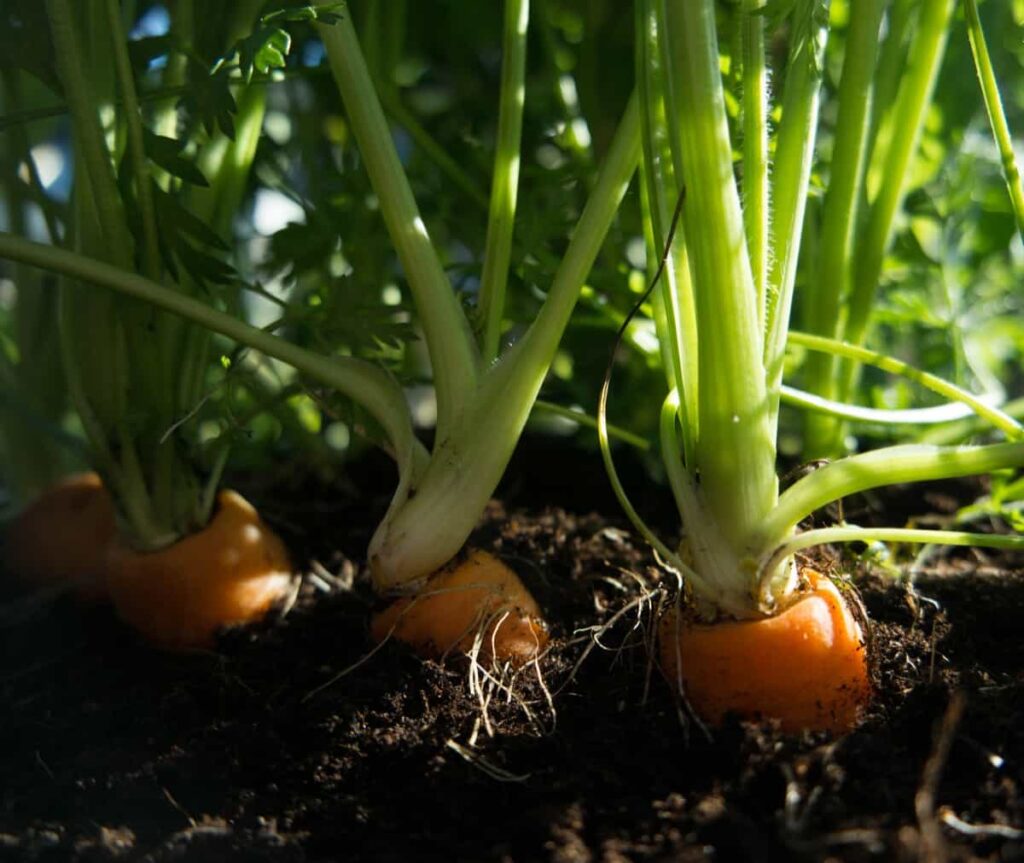
Conclusion
In conclusion, choosing the right carrot companion plants can greatly benefit their growth and overall health. These companion plants can help deter pests, improve soil quality, provide shade, and attract beneficial insects. Gardeners can create a thriving and productive vegetable garden by planting these companions alongside carrots.
- Budget Friendly Sheep Shed Ideas: Cheap and Low-Cost Tips
- How Much Do Cattle Farmers Make: Revenue Streams in Cattle Farming
- Management Pests and Diseases in Your Cotton Field
- Sheep Farming Business Plan for Beginners
- Aquaponic Farming at Home: A Step-By-Step Guide
- Profitable Village Farming Business Ideas in 2024
- High-Yield Aquaculture: Fast-Growing Fish for Farming
- Effective Fish Pond Construction Techniques for Beginners
- Irrigation and Water Management in Pineapple Farming
- Blossom to Harvest: Mastering Flowering and Pollination in Papaya Farming
- Pig Fattening Essentials: From Selection to Sale for Beginners
- Raising Wagyu Cattle: A Complete Guide for Premium Beef Production
- Soil Types and Their Water Holding Capacity
- Optimizing Irrigation Schedules for Coconut Groves for Enhanced Yield
- Espresso Your Garden: Coffee Grounds for Healthier Acid-Loving Plants
- The Best Soil Mix for Snake Plants: How to Mix Your Own Snake Plant Soil
- Green Thumb Success: Expert Tips for Cultivating Greenhouse Beans All Year Round
- Bloom All Year Round: The Ultimate Guide to Indoor Hyacinth Care
- Eco-Friendly Gardening: How to Make Liquid Fertilizer from Kitchen Waste
- Ultimate Guide to Grow Anise in Pots: Explore Seed Propagation to Harvesting
- Guide to Raising Chester White Pigs: Discover Breed Facts to Growth Management
- Mastering the Elegance: The Ultimate Guide to Weeping Cherry Tree Care, Planting, and Maintenance
- Ultimate Guide to Planting Garlic in Grow Bags: Growing Strategies for Beginners
- How to Fix Spider Plant Leaf-Related Problems: Natural and Organic Remedies
- 10 Reasons Why Your Tulsi Plant is Shedding Leaves: Home Remedies and Solutions
- Optimizing Growth and Yield: The Advantages of Palm Bunch Ash Fertilizer
- Utilizing Neem Oil Extract as a Natural Pesticide for Hydrangea
- From Soil to Harvest: Various Ways in Which Farmers Can Use AI Tools
- Steps to Encourage and Induce Citrus Flowers: A Comprehensive Guide
- How to Fix Snake Plant Leaf-Related Issues: Natural and Organic Remedies
- Transform Your Garden into a Fragrant Oasis with Raat Ki Rani (Night Blooming Jasmine)
- Discover the Ideal Chicken Breeds for Philippine Farms
- How to Create a Poultry Egg Farm Business Plan for Profits
- Grow Lemon Cucumbers Like a Pro: Insider Techniques for Bountiful Yields
- Ultimate Guide to Caring for Your Pink Princess Philodendron: Tips for Thriving Variegation
- Areca Nut Profit Per Acre: Calculating Yield and Cost of Cultivation
